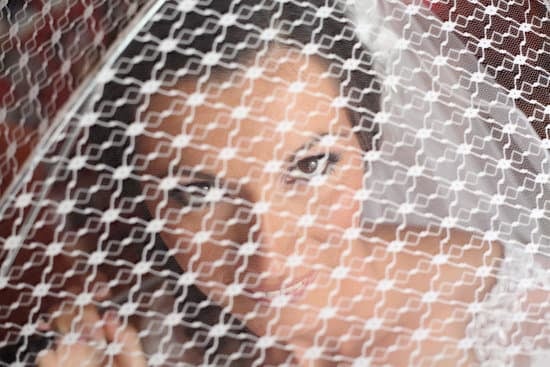Wondering, “Can I wear white to a wedding?” has become a common question for many wedding guests. The idea of wearing white to a wedding comes with a long history and deep cultural significance, making it a topic worth exploring. From traditional etiquette to modern interpretations, the decision to wear white as a guest to a wedding is not always clear-cut.
The color white has long been associated with purity, innocence, and new beginnings, making it the traditional choice for brides on their wedding day. But the history and symbolism of wearing white to a wedding go beyond just the bride’s attire. Understanding the origins and traditions behind this custom can provide valuable insight into the etiquette and significance of wearing white as a guest.
As attitudes towards weddings and fashion evolve, so do the rules and norms surrounding what guests can wear. While some may argue that wearing white to a wedding is still off-limits, others may have more lenient perspectives. Exploring these changing attitudes and cultural norms can help guests navigate the tricky territory of deciding whether or not to wear white to a wedding.
When Can You Wear White to a Wedding?
When it comes to attending a wedding, one of the most commonly asked questions is “Can I wear white to a wedding?” Traditionally, wearing white to a wedding has been reserved for the bride as it symbolizes purity and innocence. However, there are certain situations and cultural norms where guests may be able to wear white without causing offense.
Traditional Etiquette and Rules
According to traditional etiquette, it is generally frowned upon for guests to wear white to a wedding. The belief is that wearing white may take attention away from the bride, who should be the focal point on her special day. In Western cultures, this rule is particularly strict, with guests expected to choose other colors for their attire.
Different Scenarios and Cultural Norms
Despite traditional rules, there are certain scenarios and cultural norms where wearing white can be acceptable. For example, in some cultures such as Asian weddings, it is common for guests to wear traditional clothing that may include shades of white or ivory. Additionally, if the couple specifies a dress code that allows for white attire or if the wedding has a specific theme that calls for guests to wear all-white outfits, then wearing white may be appropriate.
Modern Perspectives on Wearing White
In modern times, attitudes towards wearing white have become more relaxed. Many people believe that as long as the outfit does not resemble a traditional bridal gown and does not overshadow the bride’s attire, it can be acceptable for guests to wear white.
However, others still hold onto traditional beliefs and consider it taboo for anyone other than the bride to wear white at a wedding. Ultimately, when deciding whether or not you can wear white to a wedding, it is important to consider the preferences of the couple getting married and any specific guidelines they have provided.
The Modern Interpretation of Wearing White to a Wedding
In the modern era, the question “can I wear white to a wedding” has become a topic of much debate and discussion. With changing cultural norms and evolving fashion trends, the traditional etiquette surrounding wearing white to a wedding has shifted. Many people now wonder if it is acceptable for wedding guests to don this color on such a special occasion.
Changing Attitudes
In recent years, there has been a shift in attitudes towards wearing white to weddings. While some still adhere strictly to the traditional etiquette that reserves white for the bride only, others have embraced a more relaxed approach. In some circles, it is now considered socially acceptable for guests to wear white to weddings, as long as they do so tastefully and respectfully.
Acceptability in Different Cultural Contexts
The acceptability of wearing white to a wedding also varies across different cultural contexts. In some cultures, such as in parts of Asia, wearing white or predominantly white attire to a wedding is perfectly normal and does not carry the same symbolism as it does in Western traditions. Understanding these cultural nuances can help guests navigate whether wearing white may or may not be appropriate for a specific wedding event.
Differing Perspectives
Opinions on the matter vary greatly among individuals. Some believe that wearing any shade of white-whether ivory, cream, or champagne-should be completely off-limits for wedding guests.
Others are more open-minded and believe that as long as the outfit is not overtly bridal or attention-grabbing, it can be acceptable to wear white as a guest. Ultimately, navigating this modern interpretation of wearing white to a wedding involves considering factors like cultural context and personal style sensibilities while being respectful of traditional wedding etiquette.
Alternatives to Wearing White to a Wedding
When attending a wedding, it’s important to be mindful of the traditional etiquette and rules surrounding wearing white. If you’re looking for alternative outfit options that are stylish and appropriate for a wedding, here are some suggestions to consider:
- Soft pastel colors: Opt for delicate shades such as blush pink, light blue, or mint green. These colors are feminine and elegant, making them perfect for a wedding guest outfit.
- Bold jewel tones: Consider rich colors like emerald green, royal blue, or deep purple. Jewel tones can add a touch of glamour to your look while still adhering to the dress code.
- Printed or patterned dresses: Choose dresses with floral prints, geometric patterns, or abstract designs. This can help you stand out without overshadowing the bride.
- Lace or embroidered details: Look for dresses with lace accents or intricate embroidery. These subtle embellishments can add texture and visual interest to your outfit.
These alternative options allow you to express your personal style while respecting the significance of the color white at weddings. Remember to consider the dress code specified on the wedding invitation and choose an outfit that reflects the formality of the event.
In addition, accessorizing plays a key role in completing your wedding guest ensemble. Statement jewelry, elegant heels, and a chic clutch can elevate your look while maintaining a respectful distance from white attire.
As you consider these alternatives for wearing white to a wedding, keep in mind that the goal is to celebrate love and happiness with the newlyweds while showing respect for their special day. By choosing an outfit that aligns with the suggested guidelines and demonstrates thoughtfulness towards the couple, you can ensure that you’ll look fashionable and appropriate as a guest at any wedding celebration.
The Bride’s Perspective
As a bride, the decision of whether or not guests can wear white to a wedding is a topic that often sparks debate and concern. Traditionally, white has been reserved for the bride as it symbolizes purity and innocence.
Many brides still hold onto this tradition and may feel uncomfortable or even offended if a guest chooses to wear white to their wedding. From the bride’s perspective, seeing a guest in white can take away from the special significance of her own attire on her big day.
For many brides, their wedding dress is a reflection of their personal style and a representation of the love and commitment they are about to embark on. Seeing a guest in a white dress at their wedding may cause unnecessary stress and anxiety, taking away from what should be one of the happiest days of their lives. It’s important to consider the bride’s feelings and show respect for her choice to wear white on her wedding day.
From the perspective of a bride, it’s understandable that wearing white as a guest to her wedding can be seen as inappropriate. This sentiment is often echoed by family members and close friends who want the bride to have her moment in the spotlight without any distractions or disruptions.
Therefore, when deciding on an outfit for a wedding, guests should keep in mind the emotions and concerns of the bride when considering wearing white. If in doubt, it might be best to opt for another color that does not compete with the bride’s attire.
Fashion Tips for Wearing White to a Wedding
When it comes to attending a wedding, deciding what to wear can be a daunting task. And if you’re considering wearing white, the decision becomes even more complicated. While some may question whether “can I wear white to a wedding?” the truth is that it’s not always taboo, as long as you do it tastefully.
If you’ve decided to wear white to a wedding, it’s important to keep in mind a few fashion tips to ensure that you don’t overshadow the bride or commit a major fashion faux pas. First and foremost, it’s essential to choose the right shade of white.
Opt for soft, muted shades such as cream, ivory, or champagne instead of pure white, which is typically reserved for the bride. This will ensure that you still stand out without upstaging the main star of the event.
Another crucial tip for wearing white to a wedding is to consider the style and cut of your outfit. A simple and elegant dress or jumpsuit can be a great choice for a wedding guest look when opting for white. Avoid overly formal or bridal-looking gowns or dresses with extravagant trains that can come off as inappropriate for a guest.
Furthermore, accessorizing plays a key role in pulling off a white ensemble at a wedding. Choose accessories that compliment your outfit without drawing too much attention away from it. Delicate jewelry pieces and neutral-colored shoes and handbags are ideal choices when wearing white to a wedding.
Overall, by following these fashion tips and keeping in mind common etiquette, you can definitely wear white to a wedding without causing any offense or stealing the spotlight from the bride. Just remember that subtlety is key when choosing your outfit.
Celebrity and Royal Examples
While the etiquette and rules surrounding wearing white to a wedding have been long-standing, there have been several instances where celebrities and members of royal families have donned white to weddings, sparking debate and conversation. One famous example is when Amal Clooney wore a stunning yellow and white dress to Meghan Markle and Prince Harry’s wedding in 2018.
Many praised her outfit choice for its elegance and unique color combination, while others felt that wearing any shade of white to a wedding was inappropriate.
Another noteworthy instance is when Pippa Middleton, sister of Kate Middleton, wore a form-fitting, white dress as the maid of honor at her sister’s wedding to Prince William. While some believed that her choice of attire overshadowed the bride, others admired the classic and sophisticated look she sported on the big day.
Even in royal circles, controversies surrounding wearing white to weddings have emerged. When Princess Eugenie married Jack Brooksbank in 2018, Victoria Beckham received criticism for wearing a long-sleeved, cream-colored dress that many argued was too close to the color white. Despite this backlash, Beckham’s outfit became a hot topic in fashion circles and sparked discussions about what is considered acceptable when it comes to wearing white to weddings.
These examples showcase how celebrities and members of royal families can influence popular opinion on what is appropriate attire for a wedding. It also highlights the evolving attitudes towards traditional wedding etiquette and rules on guests wearing white to such events.
| Celebrity/Royal | Wedding Event |
|---|---|
| Amal Clooney | Meghan Markle & Prince Harry’s Wedding (2018) |
| Pippa Middleton | Kate Middleton & Prince William’s Wedding |
| Victoria Beckham | Princess Eugenie & Jack Brooksbank’s Wedding (2018) |
Conclusion
In conclusion, the decision of whether or not to wear white to a wedding ultimately comes down to personal preference, cultural norms, and the specific wishes of the bride. While traditional etiquette may discourage guests from wearing white to a wedding in order to avoid overshadowing the bride, modern perspectives have become more flexible and open-minded.
It is important for guests to consider the feelings of the bride and adhere to any specific dress code or cultural customs that may apply.
When unsure about what to wear, it is always best to consult with the bride or other members of the wedding party for guidance. Additionally, considering alternative outfit options such as pastels, floral prints, or sophisticated neutral tones can provide a stylish and respectful alternative to wearing white as a guest.
Ultimately, the most important thing for guests to keep in mind is that a wedding is a celebration of love and unity. By being considerate and respectful in their attire choices, guests
Frequently Asked Questions
Is It OK to Wear White as a Wedding Guest?
It is generally considered a fashion faux pas to wear white as a wedding guest, as it can potentially overshadow the bride. Some cultures and regions may have different traditions, but it’s best to err on the side of caution.
How to Wear White to a Wedding Without Offending the Bride?
If you want to wear white to a wedding without causing any offense, consider choosing an outfit with subtle accents or pair it with colorful accessories. This can help to make your outfit less bridal and more appropriate for a guest.
What to Do When Someone Wears White to a Wedding?
If you encounter someone wearing white to a wedding, the best course of action is to simply move past it and enjoy the celebration. Pointing out their attire could potentially embarrass them or cause unnecessary tension at an otherwise joyous event. Focus on enjoying the special day instead.

I have been involved in marriages for over 20 years helping couples and singles understand more about them.





